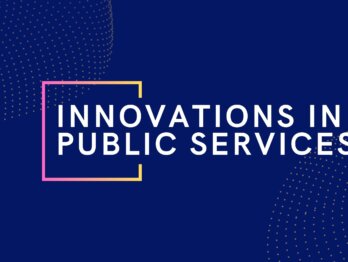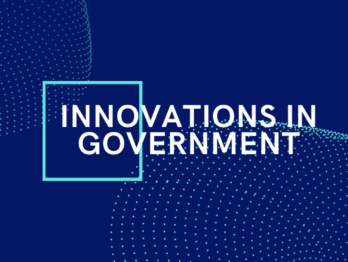Global Trends in Government Innovation 2023

In the face of what has increasingly been referred to as an ongoing “permacrisis”, governments must cope with and respond to emerging threats while already grappling with longstanding issues such as climate change, digital disruption and low levels of trust. Despite compounding challenges, governments have been able to adapt and innovate to transform their societies and economies, and to transform themselves and how they design and deliver policies and services. Indeed, recent crises have served to catalyse innovation, and innovation has emerged as a much-needed driver of stability that can generate public value in difficult times.
In this context, understanding new approaches and spreading successful ideas has never been more important. In seeking to do our part to promote this, OPSI and the United Arab Emirates (UAE) Mohammed Bin Rashid Centre for Government Innovation (MBRCGI) have worked in partnership for nearly seven years to surface leading edge public sector innovation trends and to tell the stories of innovators around the world who are working to challenge existing norms and embed new ways of doing things.
Today, we are excited to jointly launch our report Global Trends in Government Innovation 2023, the preliminary report of which was launched at the World Government Summit (WGS), which brings together over 4 000 participants from more than 190 countries to discuss innovative ways to solve the challenges facing humanity.
Global Trends in Government Innovation 2023
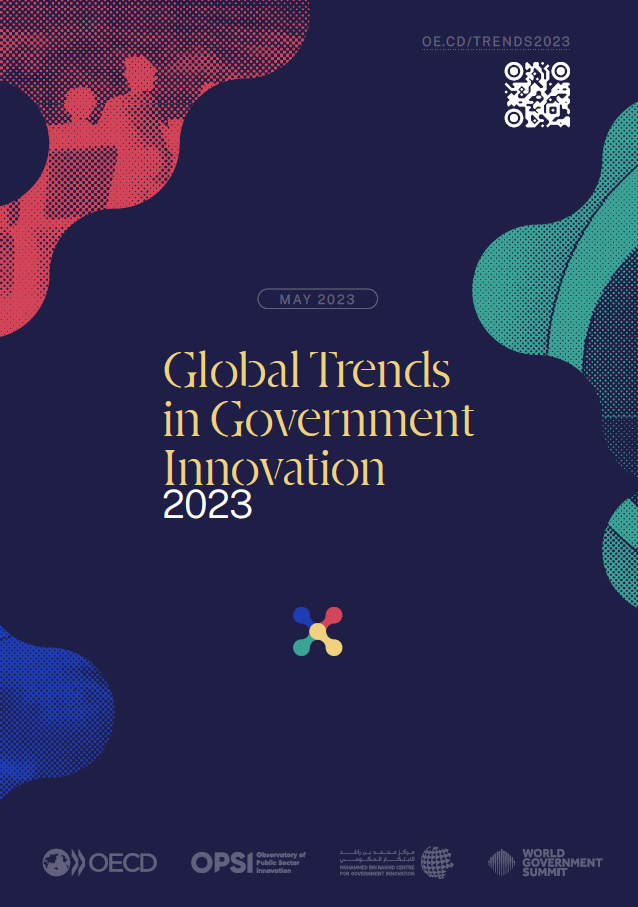
As in previous years, the work for identifying this year’s trends has been entirely ground-up and fuelled by innovation leaders and practitioners who, day in and day out, are doing the difficult work of pushing boundaries and changing the status-quo in their own countries and communities. In coupling our own research with user-submitted case studies as part of our Call for Innovations global collective intelligence exercise, we have spent the last several months analysing 1 084 innovations from 94 countries and holding interviews with innovation teams to derive and understand the novel government practices bubbling up from beneath the surface.
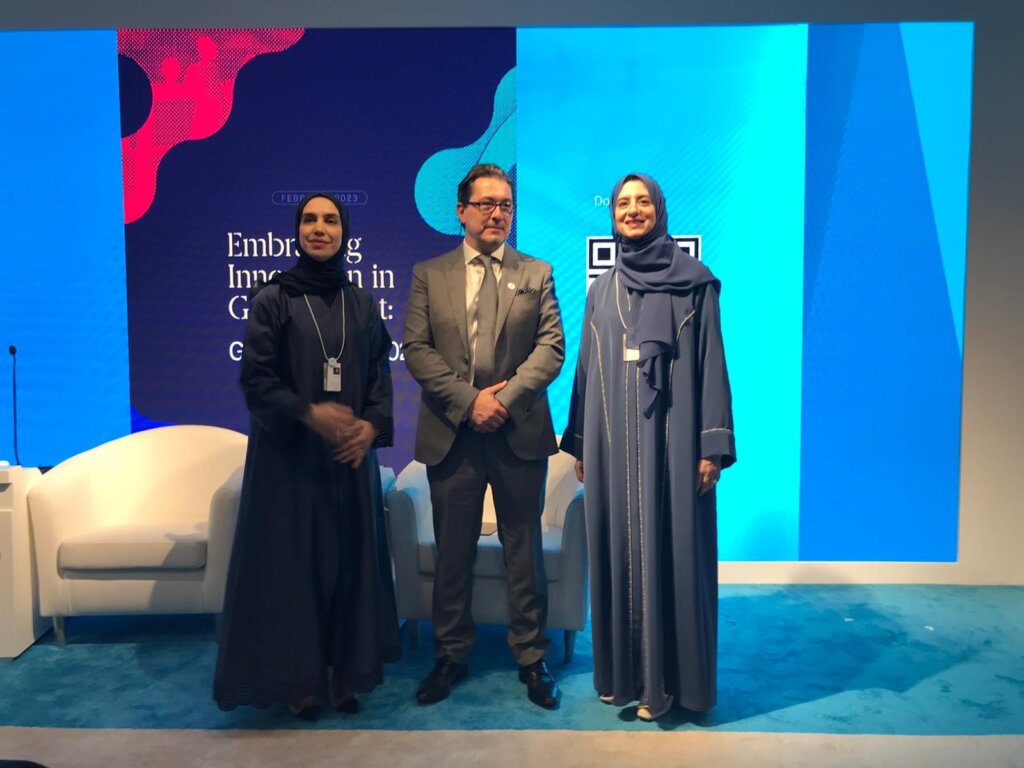
For 2023, we have identified four primary innovation trends, alongside ten in-depth case studies of projects at the forefront of innovation to illustrate them. Each of these, as well a dozens of other compelling examples, are presented in the report.
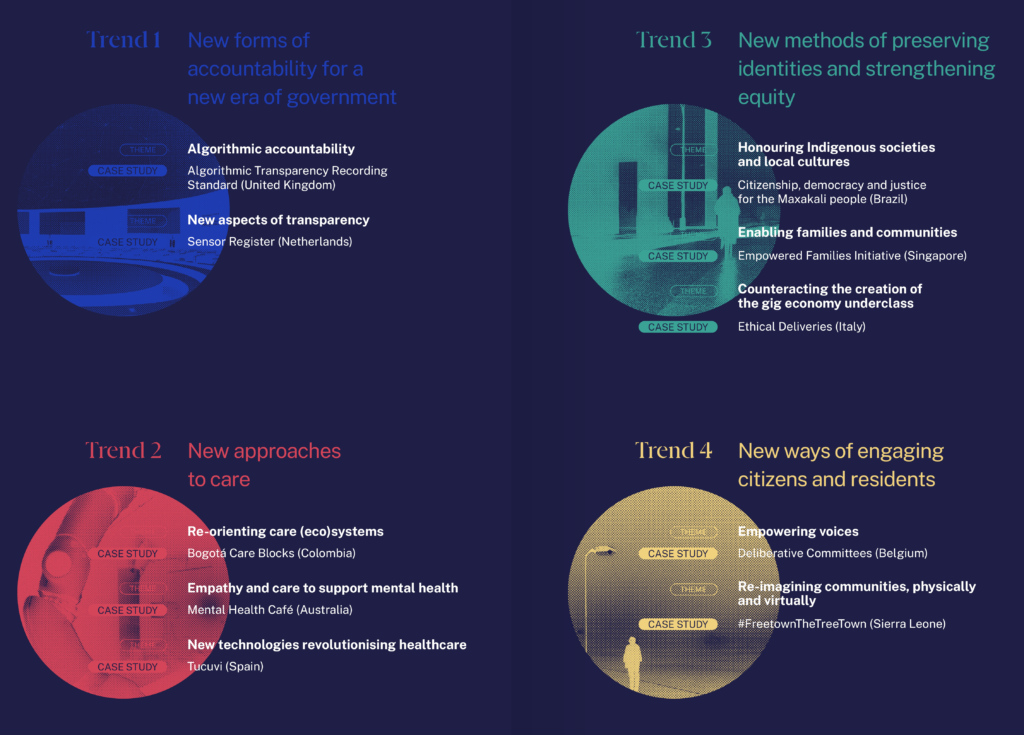
These trends and case studies demonstrate how governments are working to create societies that are future-fit and more resilient to shocks, all while ensuring stronger accountability, equity, empathy and proactivity.
- Trend 1: ‘New forms of accountability for a new era of government‘, which takes a deep dive into the government trend for incorporating Artificial Intelligence into the design and delivery of policies and services and ensuring algorithmic accountability and new aspects of transparency.
- Trend 2: ‘New approaches to care‘, highlights the trend towards establishing an adequate response to new healthcare challenges, often stemming from the COVID-19 pandemic, including through integrated services, a focus on mental health, and rapid growth in technological innovations.
- Trend 3: ‘New methods for preserving identities and strengthening equity‘, analyses government efforts towards tackling new and old inequities, particularly related to Indigenous societies, as well as the need to recognise and safeguard cultural values.
- Trend 4: ‘New ways of engaging citizens and residents‘, focuses on the evolution of open government trends and the drive towards making public decision making more participatory, inclusive and democratic in both physical and virtual spaces.
“This year’s innovation trends demonstrate how governments are leveraging the power of digital to accelerate innovation across a spectrum of mission areas, from healthcare and social programmes to economic development and community building. Critically, their efforts have evolved significantly, with a stronger focus on responsible and ethical use of artificial intelligence, holding public algorithms to account and building trust than ever before. This report serves as beacon for what governments can achieve by pushing boundaries, and we hope, a spark to catalyse innovative and creative efforts around the world. At the OECD, we are delighted to partner with the UAE on this journey towards progress.” – Carlos Santiso, Head of Digital, Open and Innovative Government, OECD.

Although not all the efforts uncovered for this work can be featured in this report, many are available on the OPSI Case Study Library, a growing resource where public servants can learn about innovative projects around the world. It’s not too late to submit a case study – we are always interested in learning more about innovations underway in government. We encourage you to submit a case (login required), and we will use it to inform future trends analysis.

Interested in learning more about the top global trends and cases in public sector innovation? You can find both the long-form report and a summary version here.


